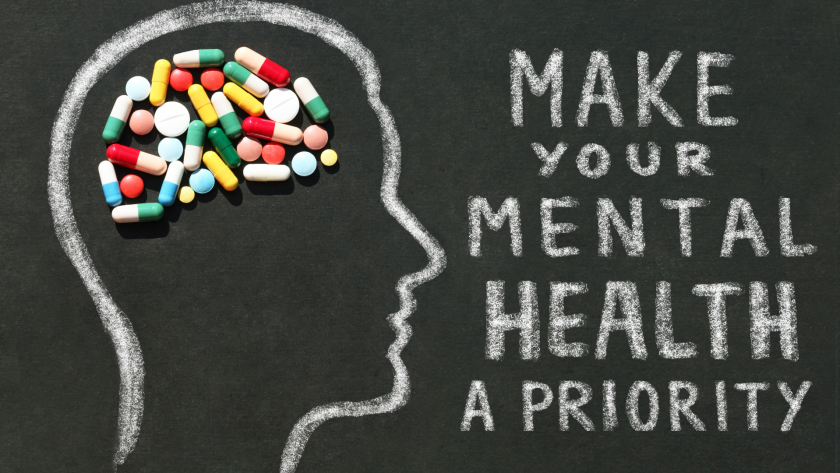Mental health conditions are all too common. They affect people of all ages and from all walks of life. However, mental health conditions’ stigmas still run deep. The general suicide rate is on the rise, and the suicide rate for young adults between the ages of 15 and 34 is twice the rate as compared to all other age groups in the country. Some suicides result from mental illness, but others are the result of substance abuse or devaluation of self-worth caused by damaging life events. Whatever the cause, we need to stop the stigma of mental illness and begin to treat it as a serious health problem that it clearly is.
Care for mental health is crucial for many people, especially the elderly since they often require more help than the young. This is why there are more senior care centers (such as senior living in Warren, NJ). In the same way, young people’s mental health needs to be taken into consideration, which can help them receive needed help. To ensure mental health patients do not feel ashamed of themselves, it is also critical to spread awareness about mental health and how to behave with them.
Mental Illness Doesn’t Make You Weak
There is a pervasive myth out there that mental illnesses are something that weak people suffer from. It’s a lie. Mental illness does not equal weakness; however, it has been linked to being weak and feeling powerless. The truth is that mental illness does not equal weakness. According to the National Institute of Mental Health, mental illness is “a brain disorder that causes signs, symptoms, or severe illnesses that interfere with everyday life.”
Mental illness doesn’t make you weak. It only makes you human. A mental illness is a mental illness, no matter who suffers from it. But the stigma that comes with mental illness makes it so difficult to talk about. So many of us suffer silently. Some just go on with their lives as if they have it under control. Others live in fear and worry they will hurt someone. But the reality is that mental illness does not make you weak. It’s simply an illness.
Mental illness can drive people to go to extremes in order to make themselves feel better. Some may turn to unhealthy coping mechanisms like alcohol or other substances in order to inebriate themselves to placate their minds from feeling the negative emotions. This can lead to substance abuse and addiction, which can ostracize them from society, resulting in their mental health getting worse. It’s always important to remember that mental health has a significant genetic component, and it’s not in an individual’s hands. Today, there are options to handle these hurdles in a different way. Addicts can check into Paramount Recovery Centers (or similar rehab facilities), to better deal with their issues.
The Effects of Stigma
Stigma is the genuine and harmful fear that others may judge you because of your sexual orientation, fashion choices, nationality, religious beliefs, political affiliations, or socioeconomic status. Stigma can be experienced by the people you identify with, society as a whole, and, sometimes, even ourselves.
When most people think of mental health stigma, they often consider how it negatively affects individuals with mental illnesses. However, mental health stigma also impacts people in recovery from substance use disorders. For instance, stigma might lead to feelings of shame and isolation, hindering individuals in recovery from seeking the support they need. In such cases, collaborating with professionals at rehabilitation centers like The Recovery Village Indianapolis can significantly help individuals overcome stigma-related challenges and enhance their recovery journey.
Similarly, let’s consider another scenario in which stigma can play a significant role, such as an individual grappling with sex addiction-a struggle that can significantly affect their mental well-being. Due to the prevailing stigma surrounding mental health issues, it’s probable that this person might refrain from seeking help. This societal judgment can profoundly impact the mental state of the individual, who could find solace in attending a therapy session, or maybe reading literature similar to sanon books.
Unfortunately, societal stigma may deter them from seeking the necessary support. In essence, whether poor mental health is intertwined with addiction or challenging life circumstances, it remains paramount to actively seek the assistance needed.
Why We Need to Stop the Stigma of Mental Health?
The stigma surrounding mental health is a major problem. Too many people don’t believe they need help because they feel they should be able to overcome any problem on their own. But the reality is that mental health issues are just like physical health issues; they are nothing to be ashamed of, and people who get therapy tend to recover better than those who don’t.
A stigma is defined as “a mark of disgrace or infamy,” and mental health is a field that has quickly earned that mark. Those with “mental health issues” are often ridiculed, marginalized, and stigmatized, making it difficult for them to seek the help they need. All too often, the media uses sensationalism to amplify the vilification of those suffering from mental health issues, helping them stay in the shadows. But people with mental illnesses-chronic depression, bipolar disorder, schizophrenia, and anxiety disorders-deserve better. And society must do better. The first step is to remove stigmas-stop saying mental illness is something to be embarrassed about or ashamed of.
Be Passionate. They are People Too!
When people feel comfortable sharing, they can often work through their own problems faster. Be passionate. Don’t ever discriminate a people with mental health problems; they don’t want it. Just thank that it’s not you who are facing struggles in daily life.




